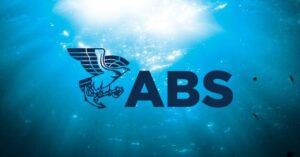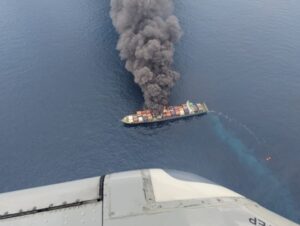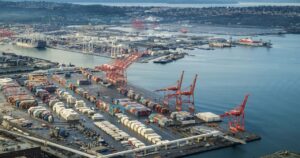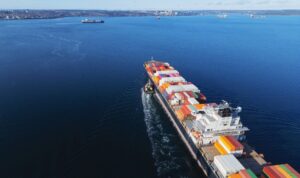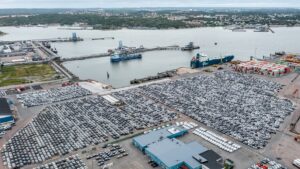South Korean shipping company Hyundai Merchant Marine (HMM) has made significant strides in reducing its carbon emissions in recent years, according to a company statement.
The company has been able to reduce CO2 emissions from transporting one container for 1 kilometre from 68.7 grammes in 2010 to 29.05 grammes in 2021, a decrease of 57.7 per cent.
These reductions come even as the company increased its fleet capacity more than twofold during the same period, from 337,407 TEU to 755,209 TEU.
HMM’s efforts have included upgrading its fleet with energy-efficient mega-vessels, using premium antifouling paint, and modifying the bulbous bow’s shape to reduce frictional resistance.
Additionally, the company has reportedly optimised its service routes, speeds, and cargo stowage to improve operational efficiency.
READ: HMM, PANASIA to study onboard carbon capture system
In 2015, HMM established a dedicated task force to manage energy efficiency effectively and, in 2020, opened a Fleet Control Center that analyses real-time data on vessel operations to reduce greenhouse gas emissions.
The company also committed to reaching net-zero carbon emissions across its fleet by 2050 and, last February, signed contracts for the construction of nine 9,000 TEU methanol-fueled container ships.
An HMM official stated: “We will continue to engage in activities to reduce greenhouse gas emissions based on data-driven analysis and enhance our environmental capability.”
Korea Development Bank (KDB) recently initiated the privatisation process of HMM.
KDB and Korea Ocean Business Corporation (KOBC), HMM’s two largest stakeholders, have announced plans to form an advisory group to sell the government’s interest in the shipping line.



